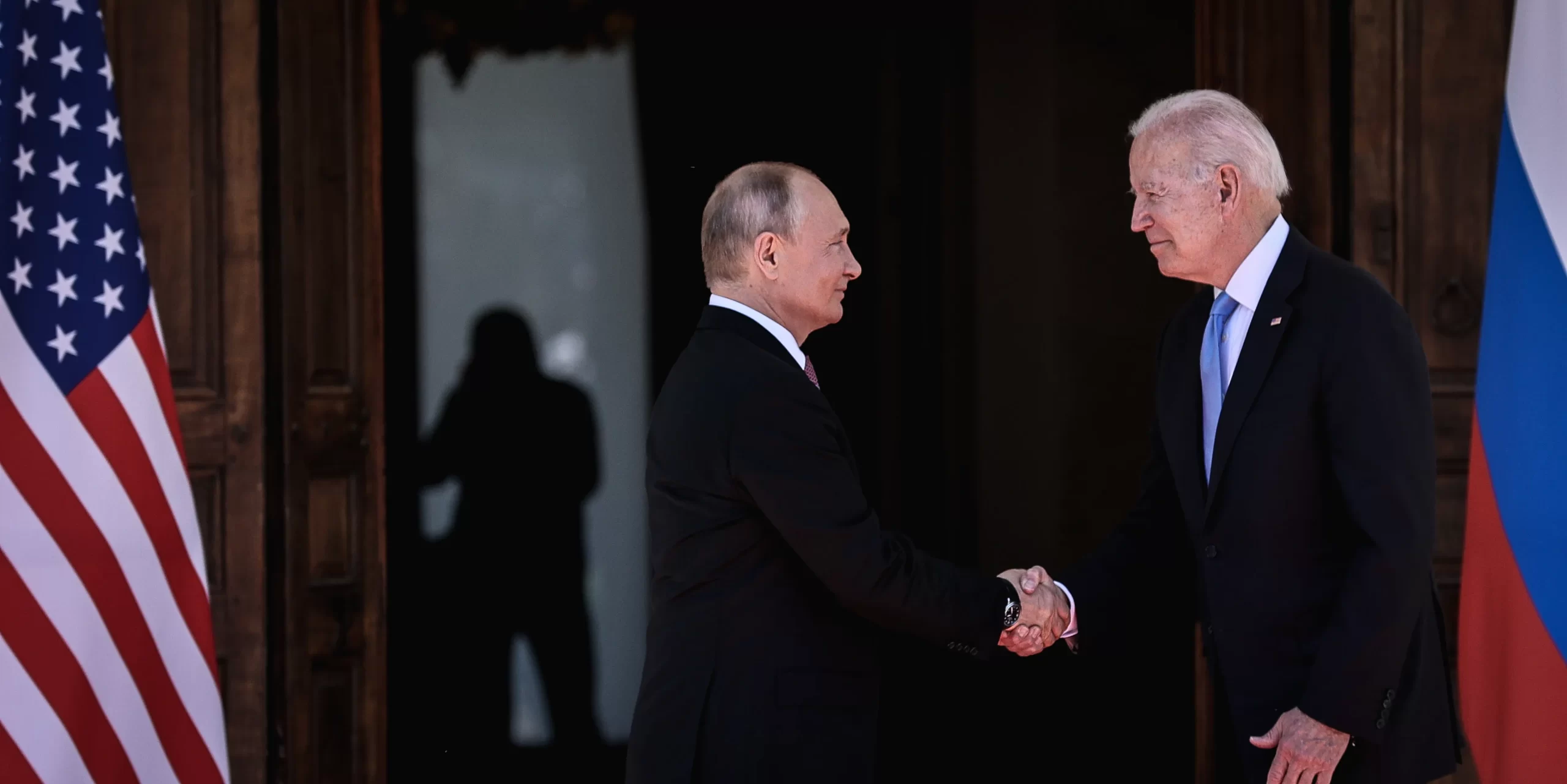Putin to be interviewed by Tucker Carlson.
Tucker Carlson highlighted the significant impact of the Ukraine conflict on global military and economic dynamics, criticizing mainstream American media for its biased coverage. He emphasized the lack of balanced reporting, particularly in failing to interview Russian President Vladimir Putin while extensively covering Ukrainian President Zelensky.
Through his platform on X (formerly Twitter), Carlson aims to provide alternative perspectives to mainstream media propaganda and challenge the official media narratives. He condemned the prevalence of government propaganda disguised as journalism and stressed the importance of freedom of speech and access to unbiased information for informed citizenry, especially in the case of Putin.
Why I'm interviewing Vladimir Putin. pic.twitter.com/hqvXUZqvHX
— Tucker Carlson (@TuckerCarlson) February 6, 2024Carlson’s upcoming interview with Putin signifies a commitment to presenting diverse viewpoints and fostering open discourse, contrasting with the censorship often observed in mainstream media. He advocates for transparency and encourages viewers to make their own judgments based on uncensored content.
Despite facing criticism and calls for censorship from establishment figures, Carlson remains steadfast in his pursuit of truth and accountability. His willingness to engage with controversial topics and challenge prevailing narratives underscores the importance of independent journalism in a democratic society. Putin is a key figure in the Ukraine War, Putin ordered the invasion and continues to defend his reasons for doing so.
As Carlson continues to push boundaries and provide alternative perspectives, his platform on X serves as a place for those seeking authentic, uncensored news and analysis in an era of media polarization and censorship, the Putin interview highlights that.
Upholding Democracy: The Crucial Role of Freedom of the Press
Freedom of the press stands as a cornerstone of democracy, playing a vital role in upholding transparency, accountability, and the dissemination of information. This fundamental right empowers journalists to investigate and report on issues of public interest without fear of censorship or reprisal, thereby safeguarding the public’s right to know and fostering an informed citizenry.
At its core, freedom of the press serves as a watchdog, holding those in power accountable and serving as a check on government abuses. By shining a light on corruption, injustice, and wrongdoing, journalists play a crucial role in exposing systemic failures and advocating for positive change. Without the ability to freely investigate and report on such matters, democratic societies risk descending into authoritarianism, with power consolidated in the hands of the few.
Furthermore, freedom of the press promotes transparency within government institutions, ensuring that decisions affecting the public are made with accountability and integrity. Journalists act as conduits of information, providing citizens with the knowledge they need to participate meaningfully in the democratic process. Whether it be uncovering political scandals, scrutinizing policy decisions, or amplifying the voices of marginalized communities, a free press serves as a beacon of truth in an often complex and opaque world.
In addition to its role in holding power to account, freedom of the press fosters innovation, diversity, and debate within the media landscape. It enables journalists to pursue stories that challenge the status quo, explore new ideas, and amplify diverse perspectives. This diversity of voices enriches public discourse, stimulates critical thinking, and promotes a more inclusive society.
However, the freedom of the press is not without its challenges. Journalists around the world face threats to their safety, intimidation, harassment, and censorship as they seek to fulfill their duty to inform the public. In some countries, authoritarian regimes actively suppress dissenting voices and restrict access to information, undermining the very foundations of democracy.
Therefore, it is essential that we defend and uphold freedom of the press as a fundamental human right. Governments, civil society organizations, and individuals must work together to protect journalists from threats and ensure that they can carry out their work without fear of persecution. Laws and regulations that support press freedom must be strengthened and enforced, while efforts to combat disinformation and promote media literacy are also crucial in fostering a healthy media environment.
Freedom of the press is indispensable to the functioning of democratic societies. It serves as a bulwark against tyranny, promotes transparency and accountability, and fosters informed public discourse. As we navigate an increasingly complex and interconnected world, the importance of defending and upholding this fundamental right cannot be overstated. Only by safeguarding the freedom of the press can we ensure a vibrant and thriving democracy for generations to come.
The relationship between the United States government and the media has been complex and at times contentious throughout history, with instances of government attempts to control or block news coverage. Two notable examples in recent years that have sparked controversy are the WikiLeaks disclosures and the case of Hunter Biden’s laptop.
- WikiLeaks: In 2010, WikiLeaks, an international non-profit organization, released a series of classified documents and diplomatic cables obtained from anonymous sources. These documents shed light on controversial issues such as the wars in Iraq and Afghanistan, human rights abuses, and diplomatic relations between countries. The release of this information sparked debate about government transparency and accountability.
In response to the WikiLeaks disclosures, the U.S. government took several measures to limit the dissemination of classified information and to prosecute those responsible for the leaks. Government officials condemned WikiLeaks and its founder, Julian Assange, accusing them of endangering national security and putting lives at risk.
The government also pressured media organizations not to publish the leaked documents, arguing that doing so could harm national security interests. Some news outlets complied with these requests, while others chose to report on the contents of the leaks despite government objections.
The WikiLeaks case raised questions about the balance between national security concerns and the public’s right to know. It also highlighted the challenges faced by journalists and media organizations when reporting on classified information that is deemed sensitive by the government.
- Hunter Biden’s Laptop: In October 2020, just weeks before the U.S. presidential election, reports emerged about a laptop allegedly belonging to Hunter Biden, the son of then-candidate Joe Biden. The laptop reportedly contained emails and other materials that raised questions about Hunter Biden’s business dealings in Ukraine and China, as well as potential conflicts of interest involving his father, who was running for president.
The story gained traction in conservative media circles and on social media platforms, but faced skepticism and scrutiny from other news outlets. Some journalists and media organizations raised concerns about the credibility of the information and the timing of its release, suggesting that it could be part of a disinformation campaign aimed at influencing the election.
Despite efforts by some media outlets to investigate the claims surrounding Hunter Biden’s laptop, the story was met with accusations of censorship and bias. Critics accused the mainstream media of downplaying or ignoring the story due to political motivations, while others argued that it was not newsworthy or credible enough to warrant extensive coverage.
The case of Hunter Biden’s laptop underscored the challenges of reporting on politically sensitive topics in the midst of a heated election campaign. It also raised questions about the role of the media in vetting and verifying information, particularly when it is obtained from anonymous or questionable sources.
WikiLeaks and Hunter Biden’s laptop illustrate the complexities of the relationship between the U.S. government and the media, and the challenges faced by journalists when reporting on sensitive or controversial issues. These cases highlight the importance of a free and independent press in holding government accountable and informing the public, even in the face of pressure or attempts to block news coverage.
Here’s a timeline outlining key events related to NATO, Putin, and Ukraine leading up to the current war:
- 1991: Collapse of the Soviet Union: The Soviet Union collapses, leading to the emergence of independent states, including Ukraine.
- 2004: Orange Revolution: Pro-Western Viktor Yushchenko wins the Ukrainian presidential election, marking a shift towards closer ties with Europe.
- 2008: NATO Bucharest Summit: NATO announces that Ukraine and Georgia will eventually join the alliance, angering Russia.
- 2010: Yanukovych Presidency: Viktor Yanukovych, a pro-Russia politician, becomes president of Ukraine, signaling a shift away from closer ties with the West.
- 2013-2014: Euromaidan Protests: Pro-European protests erupt in Ukraine after Yanukovych rejects an EU association agreement. The protests escalate into the Euromaidan revolution, leading to Yanukovych’s ousting.
- 2014: Russian Annexation of Crimea: Following Yanukovych’s ousting, Russia annexes Crimea, sparking international condemnation.
- 2014: War in Donbas: Pro-Russian separatists, allegedly backed by Russia, seize parts of eastern Ukraine, leading to a conflict in the Donbas region.
- 2014: NATO Response: NATO increases its military presence in Eastern Europe in response to Russia’s actions in Ukraine.
- 2014: NATO Warsaw Summit: NATO reaffirms its commitment to collective defense and announces the deployment of additional troops to Eastern Europe.
- 2019: Zelensky Presidency: Volodymyr Zelensky, a reformist and pro-Western figure, wins the Ukrainian presidential election.
- 2021: NATO Brussels Summit: NATO reaffirms its support for Ukraine’s sovereignty and territorial integrity, amid ongoing tensions with Russia.
- 2022: Russia-Ukraine Tensions Escalate: Tensions between Russia and Ukraine escalate, with Russia amassing troops near the Ukrainian border.
- 2022: Invasion of Ukraine: On February 24, 2022, Russia launches a full-scale invasion of Ukraine, citing concerns about NATO expansion and the alleged mistreatment of Russian speakers in Ukraine.
- 2022: NATO Response: NATO condemns Russia’s invasion of Ukraine and announces additional support for Ukraine, including increased military aid and sanctions against Russia.
- 2024: Current Situation: The war in Ukraine continues, with ongoing fighting and humanitarian crises affecting the country. NATO continues to support Ukraine while also seeking diplomatic solutions to the conflict.
This timeline highlights the complex relationship between NATO, Putin, and Ukraine, leading up to the current war and the subsequent involvement of NATO in the conflict.
Shayne Heffernan









